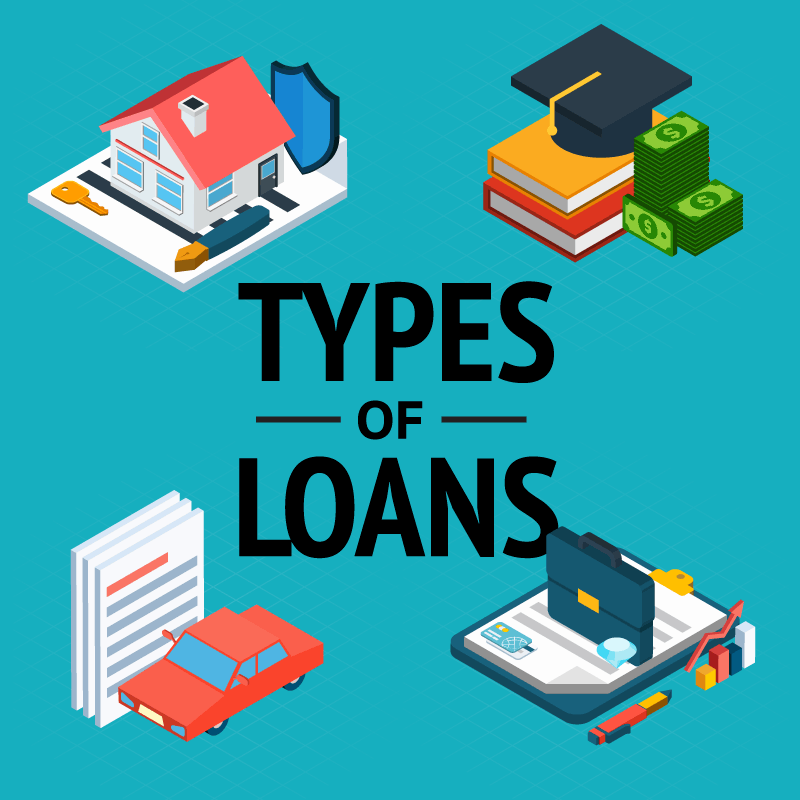Learn strategic ways to manage your finances with Cash Loans
Wiki Article
A Comprehensive Guide to Home Loans: Services and Options Explained
Charting the world of mortgage can be complex. Numerous options exist, each with unique functions and implications for prospective home owners. Understanding the distinctions in between government-backed and traditional lendings is vital. Furthermore, the application procedure entails meticulous documentation and pre-approval steps that many forget. As debtors commence on their home-buying journey, recognizing how to handle these duties properly can imply the distinction between economic stability and difficulty. What strategies can encourage them on this course?Understanding Home Loans: Kinds and Terminology
Comprehending the different sorts of home mortgage and their linked terminology is crucial for potential home owners, as it outfits them with the expertise needed to make informed economic decisions. Mortgage can be generally classified into fixed-rate and adjustable-rate mortgages. Fixed-rate home loans maintain a consistent rates of interest over the life of the funding, providing stability in monthly repayments. Fast Cash. Conversely, adjustable-rate mortgages include rates of interest that might fluctuate after a first fixed duration, possibly leading to reduced initial settlements but boosted future expensesAdditional terminology is necessary for quality. Principal describes the loan quantity borrowed, while passion is the price of loaning that quantity. The term of the finance suggests its duration, generally varying from 15 to 30 years. Understanding these fundamental ideas allows possible buyers to navigate the complex landscape of home financing, ensuring they choose the best loan choice that lines up with their monetary circumstance and lasting objectives.
Conventional Car Loans vs. Government-Backed Loans
A substantial difference in home financing exists in between conventional finances and government-backed loans, each dealing with different customer needs and situations. Conventional financings are not guaranteed or guaranteed by the government and generally need greater credit history and down settlements. They are often interesting borrowers with stable financial histories, as they might provide competitive rates of interest and terms.On the other hand, government-backed fundings, such as FHA, VA, and USDA lendings, are designed to assist specific teams of customers, including novice homebuyers and veterans. Installment Loans. These finances normally feature reduced deposit needs and more versatile credit criteria, making them available to a more comprehensive variety of individuals
Inevitably, the selection in between government-backed and conventional financings rests on the borrower's economic circumstance, long-term objectives, and eligibility, making it vital to meticulously evaluate both alternatives prior to choosing.

The Role of Rates Of Interest in Home Financing
Rate of interest play a vital function in home financing, influencing consumers' choices in between fixed and variable rate car loans. The selection in between these choices can substantially affect regular monthly repayments, affecting total cost. Recognizing just how rate of interest rates function is necessary for any individual navigating through the home mortgage procedure.Dealt With vs. Variable Rates
Homebuyers encounter an important choice when choosing in between repaired and variable rates, as this option significantly influences the cost of financing in time. Fixed-rate mortgages use stability, securing a rate of interest for the life of the car loan, which can be helpful in a rising rate of interest environment. This predictability permits homeowners to budget extra properly. Conversely, variable-rate home loans, or variable-rate mortgages (ARMs), commonly start with reduced initial rates that can vary based upon market conditions. While this might result in reduced preliminary repayments, customers face the threat of boosted prices in the future. Ultimately, the selection in between variable and set prices depends upon specific monetary circumstances, threat tolerance, and assumptions regarding future rate of interest patterns.Impact on Month-to-month Settlements
When evaluating home financing choices, the effect of rates of interest on monthly payments is a crucial element to ponder. Rates of interest directly affect the overall expense of loaning, influencing exactly how a lot a debtor will certainly pay every month. A lower rate of interest rate outcomes in smaller month-to-month payments, making homeownership extra budget friendly. Alternatively, greater rates can greatly increase monthly responsibilities, potentially straining a home owner's budget plan. Furthermore, the car loan term plays an essential function; longer terms might spread out repayments out however can cause paying more interest with time. Recognizing exactly how rate of interest connect with lending amounts and terms is essential for borrowers to make educated monetary choices and choose a home loan that straightens with their lasting financial objectives.Mortgage Brokers vs. Straight Lenders: Which Is Right for You?
When considering a home mortgage, possible customers should understand the distinctive functions and Installment Loans responsibilities of mortgage brokers and straight lenders. Each alternative provides its own benefits and downsides, which can significantly influence the total cost of funding. An informed choice needs cautious evaluation of these aspects to identify the very best suitable for specific requirements.Duties and roles Defined
Maneuvering the intricacies of home funding needs a clear understanding of the duties and obligations of home loan brokers and straight lenders. Home loan brokers act as middlemans, linking consumers with loan providers. They evaluate a debtor's economic circumstance, curate funding alternatives, and guide customers with the application procedure, usually leveraging several lending institution relationships to protect favorable terms. Alternatively, direct lenders, such as financial institutions and lending institution, offer loans directly to debtors. They deal with the whole lending procedure, from application to funding, with an emphasis on their own items. Each alternative offers distinctive opportunities for acquiring financing, making it vital for borrowers to evaluate their preferences and requirements when determining in between engaging a home mortgage broker or collaborating with a straight lending institution.Pros and Cons Contrast
Picking in between a home mortgage broker and a straight loan provider can significantly impact the home financing experience, as each alternative provides one-of-a-kind benefits and disadvantages. Home loan brokers work as intermediaries, providing access to multiple loan providers and possibly much better prices, while simplifying the financing procedure. Nonetheless, they may charge fees and depend on commission frameworks that might affect their recommendations. On the various other hand, straight lenders enhance the procedure by using internal finances, which can result in quicker authorizations and less problems. Alternatively, they might have a minimal option of products and much less flexibility concerning prices. Inevitably, the decision depends upon private preferences, economic scenarios, and the wanted degree of support throughout the mortgage trip.Price Ramifications Analyzed
While assessing the cost ramifications of mortgage brokers versus direct lenders, possible homeowners must consider numerous aspects that can significantly influence their general expenses. Mortgage brokers usually charge costs for their services, which can vary substantially, affecting the total loan price. They commonly have access to a broader array of financing products and affordable rates, potentially conserving consumers cash in the long run. Conversely, direct loan providers might offer an extra uncomplicated process with perhaps lower ahead of time expenses, but their finance options may be restricted. It is important for property owners to compare rates of interest, charges, and terms from both brokers and lenders, guaranteeing they make an educated choice that straightens with their financial objectives and demands.The Mortgage Application Process: What to Expect

The mortgage application process can typically really feel intimidating for several applicants. It usually starts with collecting required documentation, consisting of evidence of income, credit rating, and personal identification. Lenders utilize this info to evaluate the candidate's monetary security and figure out finance eligibility.
Next, candidates submit an official application, which might entail submitting online forms or giving information in person. Throughout this stage, loan providers review various elements, such as debt-to-income proportion and credit report rating, to decide on loan terms.
When pre-approved, the lending institution will carry out a thorough assessment of the residential or commercial property to identify its worth lines up with the funding quantity. This stage might also include added background checks.

After final approvals and conditions are satisfied, the financing is refined, causing the closing stage. Comprehending each step empowers candidates, making the journey smoother and more manageable as they relocate towards homeownership.
Tips for Managing Your Mortgage Responsibly
Successfully maneuvering the home mortgage application procedure is just the beginning of a responsible financial journey. Managing a home mortgage calls for attention to a number of crucial methods. Initially, debtors should establish a clear budget plan that suits month-to-month home loan payments, real estate tax, and insurance coverage. Regularly examining this spending plan assists avoid overspending and warranties timely settlements.Furthermore, making extra payments when feasible can significantly lower the financing principal and overall interest paid in time. Customers should also preserve open lines of communication with their loan provider, specifically in times of financial trouble. This can bring about possible options such as finance alterations or refinancing alternatives.
Ultimately, it is advisable to keep track of credit rating frequently. A great credit history can give possibilities for much better loan terms in the future. Installment Loans. By complying with these pointers, house owners can navigate their lending duties properly, ensuring lasting economic wellness and stability
Frequently Asked Inquiries
What Are Closing Prices and Exactly How Are They Calculated?
Closing expenses include costs connected with wrapping up a home mortgage, including assessment, title insurance policy, and financing source costs. These costs usually vary from 2% to 5% of the finance quantity, differing based upon area and loan provider.Can I Certify for a Mortgage With Bad Credit Score?
Yes, people with poor credit report can receive a home finance, though options may be restricted. Lenders frequently require higher down repayments or rate of interest prices, and exploring government-backed lendings may boost possibilities of approval.What Is Home mortgage Insurance policy and When Is It Called for?
When a borrower makes a down repayment of less than 20%, home mortgage insurance coverage protects lenders versus default and is typically called for. It guarantees that lenders recover losses if the customer stops working to repay the finance.Exactly How Does Refinancing Work and When Should I Consider It?
Refinancing involves changing a current mortgage with a new one, normally to safeguard a reduced rates of interest or adjustment finance terms. Homeowners should take into consideration refinancing when rates of interest go down considerably or their monetary circumstance improves.What Happens if I Miss a Mortgage Settlement?
If a home mortgage payment is missed, the lending institution normally analyzes late charges, reports the delinquency to credit score bureaus, and might start foreclosure procedures if payments proceed to be ignored, at some point endangering the homeowner's property.Fixed-rate home loans keep a consistent passion rate over the life of the financing, supplying security in regular monthly repayments. A substantial distinction in home financing exists between government-backed loans and conventional lendings, each providing to various consumer needs and circumstances. In contrast, government-backed financings, such as FHA, VA, and USDA loans, are made to assist particular groups of debtors, consisting of first-time buyers and veterans. Rate of interest prices play a vital function in home financing, influencing borrowers' decisions in between variable and fixed rate fundings. Fixed-rate mortgages use stability, securing in a rate of interest price for the life of the loan, which can be advantageous in a rising passion price atmosphere.
Report this wiki page